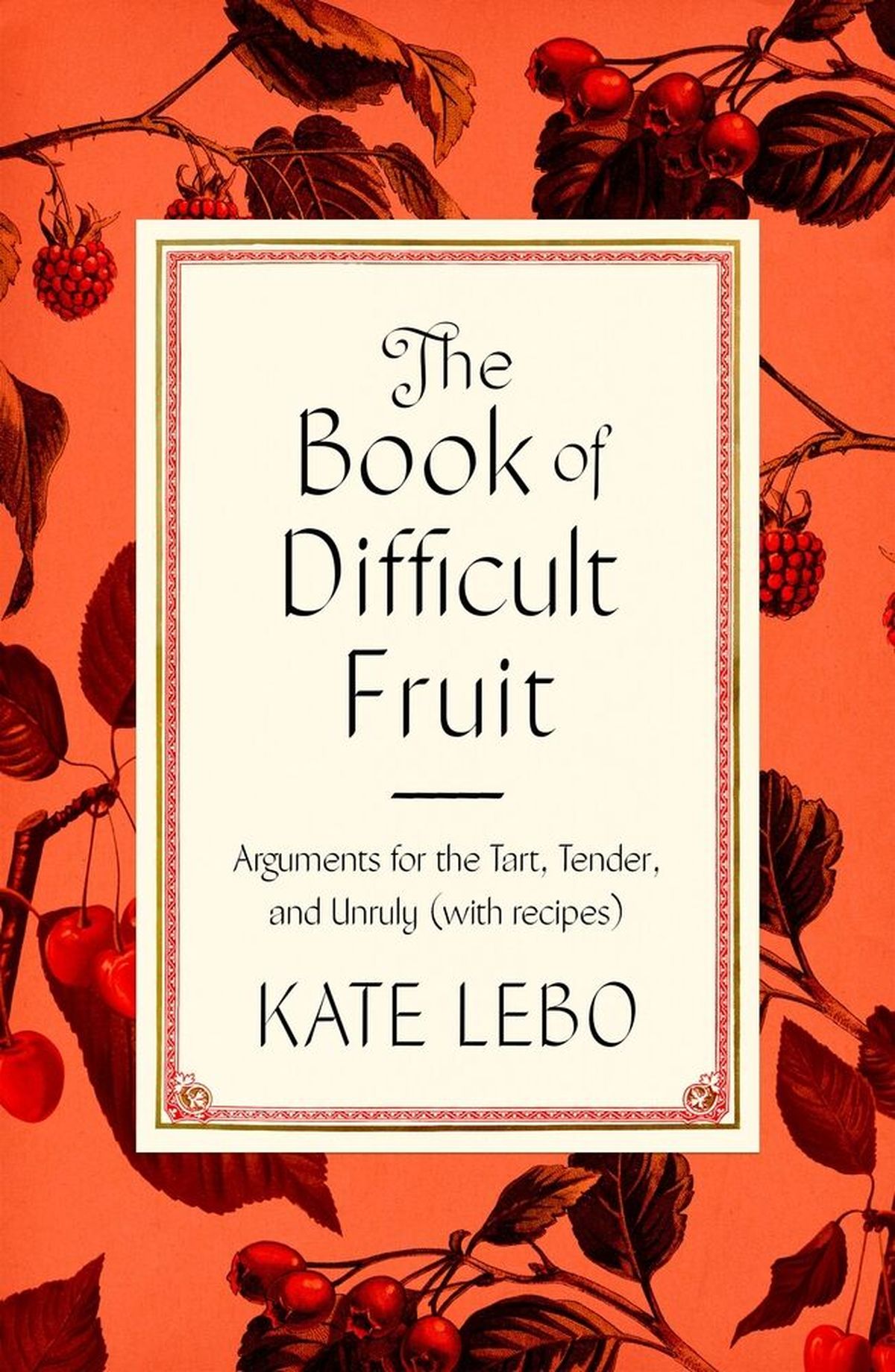Locally Writ: Kate Lebo discovers ‘a great metaphor’ in a bite of quince

Local poet and essayist Kate Lebo’s latest literary project started with a bite of quince in graduate school.
One day during her MFA studies at the University of Washington, Lebo’s officemate brought a bag of the odd little fruits to school.
“They were so beautiful, and they smelled so good, so I did exactly what I thought I was supposed to do with beautiful, good-smelling fruit – I put it in my mouth and tried to take a bite,” she said.
“But quince is incredibly hard. It’s incredibly sour and also incredibly astringent when raw, so it felt like all the juices were suddenly sucked out of my mouth.”
Digging into the history of the fruit, Lebo learned that some scholars have suggested quince was the biblical fruit of knowledge.
“This beautiful, sweet-smelling fruit that tastes so shocking – what a great metaphor,” she said.
So, she thought to herself, what other stories are there to tell about “forbidden” or “difficult” fruits?
After a cookbook (“Pie School”) and a collection of poetry on baking (“A Commonplace Book of Pie”), it seemed only natural that Lebo would continue to write about food. But her latest book, “The Book of Difficult Fruit,” is about more than that.
The relationship between acidity and sweetness that fruit embodies, Lebo explained, calls to mind similar relationships in our lives, stories “about what nurtures and what harms or tingles.”
“The way that a lot of these fruits have many different and opposing qualities of sweetness, acidity, bitterness, deliciousness, poison – that they have all of them,” she said. “It felt like a really rich opportunity to try to represent all of that at once instead of just the sweet aspects.”
Starting with the Aronia berry and ending with zucchini, “The Book of Difficult Fruit” is an “abecedarian” collection of memoirs and recipes taken from Lebo’s life, especially the past few years, living in Spokane.
“It’s been a fantastic place to be a writer, a fantastic place to write this book,” she said. “It feels very rooted in this place, and I’m proud of that.”
Sticking to the alphabetical format was limiting and freeing at the same time, Lebo said.
“When you find a form that limits what you will be doing, it’s such a relief that it becomes generative to be able to work within those restrictions,” she said.
Next week, Lebo will participate in several events during EWU’s Get Lit! Festival, including “Pie School” at 5:30 p.m. Wednesday and “Pie, Pandemic, Whiskey & Tears” at 8 p.m. Thursday. For more information, visit getlitfestival2021.sched.com.
Lebo writes in the early hours of the morning when sparks of creativity seem most reachable.
“If at all possible, go from dreaming to writing in the shortest amount of time you can manage,” she said.
Lebo recently received a $10,000 Spokane Arts Grant Award to help fund her next book, “The Loudproof Room,” a collection of essays about listening through hearing loss.
To aspiring writers, Lebo offered the following advice:
“Read, read everything, read widely, read deeply, ask other people what they’re reading, find people who will talk to you about books, go to Auntie’s and get lost. You can’t go online and accidentally get accosted by your next favorite book.
“So, go to a bookstore. You’ll go looking for one thing and come out with five other things you didn’t know you wanted. Read them. Do it again.”
Kate Lebo’s “The Book of Difficult Fruit” is available at Auntie’s Bookstore. For more information, visit katelebo.com.